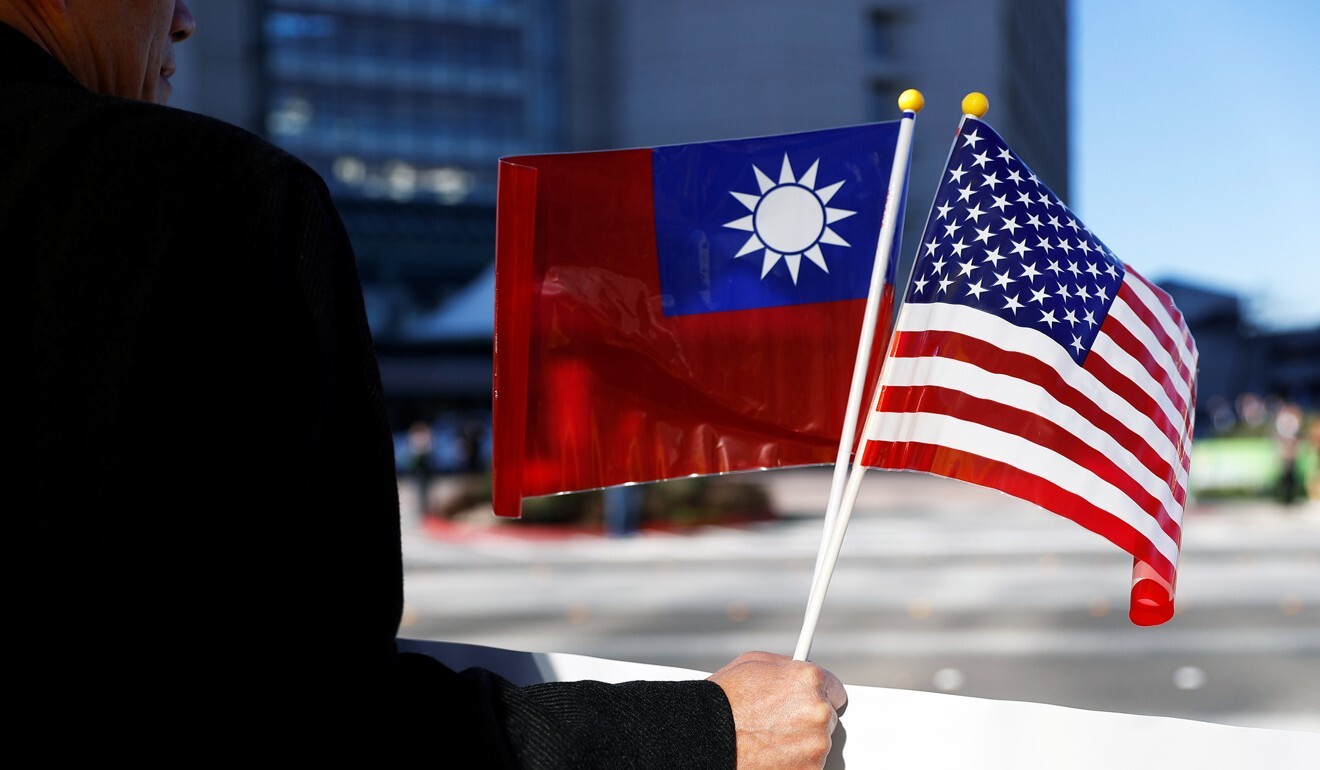
Coronavirus: WHO put nations at risk by excluding Taiwan from knowledge sharing, US report says
- Had island’s experts been allowed to share their experiences, ‘governments around the world could have had more complete information on which to base their public health policies’, congressional report says
- Document published amid growing calls for Taiwan to be allowed to attend the UN agency’s World Health Assembly, which starts on Monday
“Had the WHO allowed Taiwan’s health experts to share information and best practices in early January, governments around the world could have had more complete information on which to base their public health policies,” the report’s author, Anastasya Lloyd-Damnjanovic, wrote.
“The WHO’s suppression of information provided by Taiwan and the delayed issuance of its own guidance undermined the national security of the very member states trusting it for authoritative public health guidance.”
There have been growing calls in recent weeks – including from the United States, European Union, Australia, New Zealand and Japan – for Taiwan, a self-ruled island Beijing claims as its own, to attend the WHO’s World Health Assembly, which gets under way online on Monday.
The USCC report said Beijing had undermined Taiwan’s ability to share its public health strategy to contain the coronavirus outbreak, including its experience taking “early and aggressive” measures to identify suspected cases, trace contacts and enforce quarantines.
It outlined how the WHO had ignored an email from Taiwanese authorities in late December requesting more information about the initial cases of Covid-19 reported in the central China city of Wuhan, and their subsequent efforts to share information with the agency.
“As Taiwan acted to contain Covid-19 at home and develop globally applicable medical treatments for the virus, the WHO stonewalled its efforts to share information and participate in public health discussions with WHO member states,” the report said.
“Though the WHO permitted Taiwan experts to participate by video chat in a WHO forum to discuss responses to Covid-19 [in February], they could not interact directly with WHO member states’ representatives or share information about Taiwan’s public health response.”

Beijing also continued its pressure campaign against Taiwan during the pandemic, including flying military aircraft over the median line of the Taiwan Strait and conducting a joint air and maritime drill in February that involved flights around the island, the report said.
Beijing hit back at the report on Wednesday, with foreign ministry spokesman Zhao Lijian saying it “distorted the facts” and was “full of prejudice”.
“Taiwan has never been excluded from the WHO global epidemic prevention system,” he said.
“Since the outbreak, the Democratic Progressive Party [of which Tsai is a member] has used the epidemic to engage in political manipulation and continue to play up Taiwan’s participation in the World Health Organisation and the World Health Assembly.
“Its true intention is to seek foreign support and use the current outbreak to seek Taiwan independence. We resolutely oppose this, and their attempt will never succeed.”
China’s navy gets back on training track with extensive drills
Taiwan has been a politically prickly issue for the WHO during the coronavirus outbreak, particularly after the backlash to the UN agency’s glowing praise of Beijing’s pandemic response. Last month, WHO director general Tedros Adhanom Ghebreyesus accused Taiwan of orchestrating personal and racist attacks against him, claims the island’s foreign ministry decried as “baseless”.
Steven Solomon, the WHO’s principal legal officer, said on Monday that Tedros could only extend an invitation to Taiwan to attend the assembly when it was clear its 194 member states supported such a move, as had been the case when the island was invited in the past.
“Today however, the situation is not the same,” he said. “Instead of clear support, there are divergent moves among member states and no basis, therefore no mandate, for the director general to extend an invitation.
“This is a political issue that is properly in the hands of member states.”
Solomon said that 13 member states had made a proposal for Taiwan’s attendance, which all members could consider.

